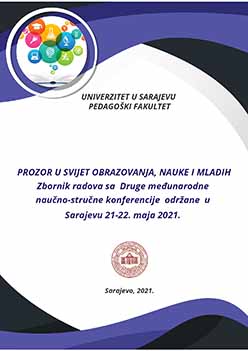METODIČKA RAZNOLIKOST KAO ODGOVOR NA IZAZOVE INKLUZIVNE NASTAVE
DIVERSITY OF TEACHING METHODS AS RESPONSE TO THE CHALLENGES OF INCLUSIVE EDUCATION
Author(s): Sandra Bjelan, Lejla Kafedžić
Subject(s): Inclusive Education / Inclusion, Pedagogy
Published by: UNIVERZITET U SARAJEVU – PEDAGOŠKI FAKULTET
Keywords: inclusive education; teaching methodology; universal design for learning; adjustment;
Summary/Abstract: Inclusion is the active, intentional and continuous engagement about diversity. Inclusive education is a process that aims to overcome barriers to participation and learning, and to respond to diversity by creating situations in which all children and young people can learn and experience competence, autonomy and belonging. The essence of inclusive education is to ensure that everyone has access, participation and achievement. In practice, inclusive education refers to a wide range of processes that seek to achieve the universal right to quality, relevant and appropriate education. Inclusive education is not about teaching a person how to deal with an education system that does not respond to a person's needs, but inclusive education, teaching forms, methods and techniques, curricula, teaching staff and pedagogical support are adapting to learning of all. Removing or reducing barriers to learning and student participation applies to all teaching resources. It is important to recognize them and use them purposefully, because there are always more resources than are used in teaching, precisely from a narrow understanding of what and who can be a resource in providing opportunities for participation and learning. Differentiation in teaching should be based on the competencies of teachers to recognize and respond to the needs of students through learning processes, while providing different ways and tools to achieve the set goals. In this process, teachers can apply the principles of universal design in education, which consists of adaptive teaching methods, forms, materials, techniques and strategies that enable effective achievement of learning outcomes for as many students of different educational needs. Universal design in education does not preclude additional adaptations for some students with disabilities. The aim of this paper is to rethink the teaching competencies of teachers at all levels of education in order to ensure quality inclusive education for all.
Book: Prozor u svijet obrazovanja, nauke i mladih
- Page Range: 5-25
- Page Count: 21
- Publication Year: 2021
- Language: Bosnian
- Content File-PDF

